Danube Cycle Plans - World Cycling Summit Velo-city 2022 included 6 sessions with DCP speakers
19-06-2022
The world's largest cycling conference, this time held in the beautiful city of Ljubljana, has just finished. The event serves as a global platform for knowledge exchange and policy transfer. Cycling the Change as the main theme covers a whole range of topics which the Danube Cycle Plans project deals with. Therefore, it is not surprising that the DCP project partners had six presentations at the conference. On the eve of this World Cycling Summit, a meeting of the Danube Cycle Plans partners took place.
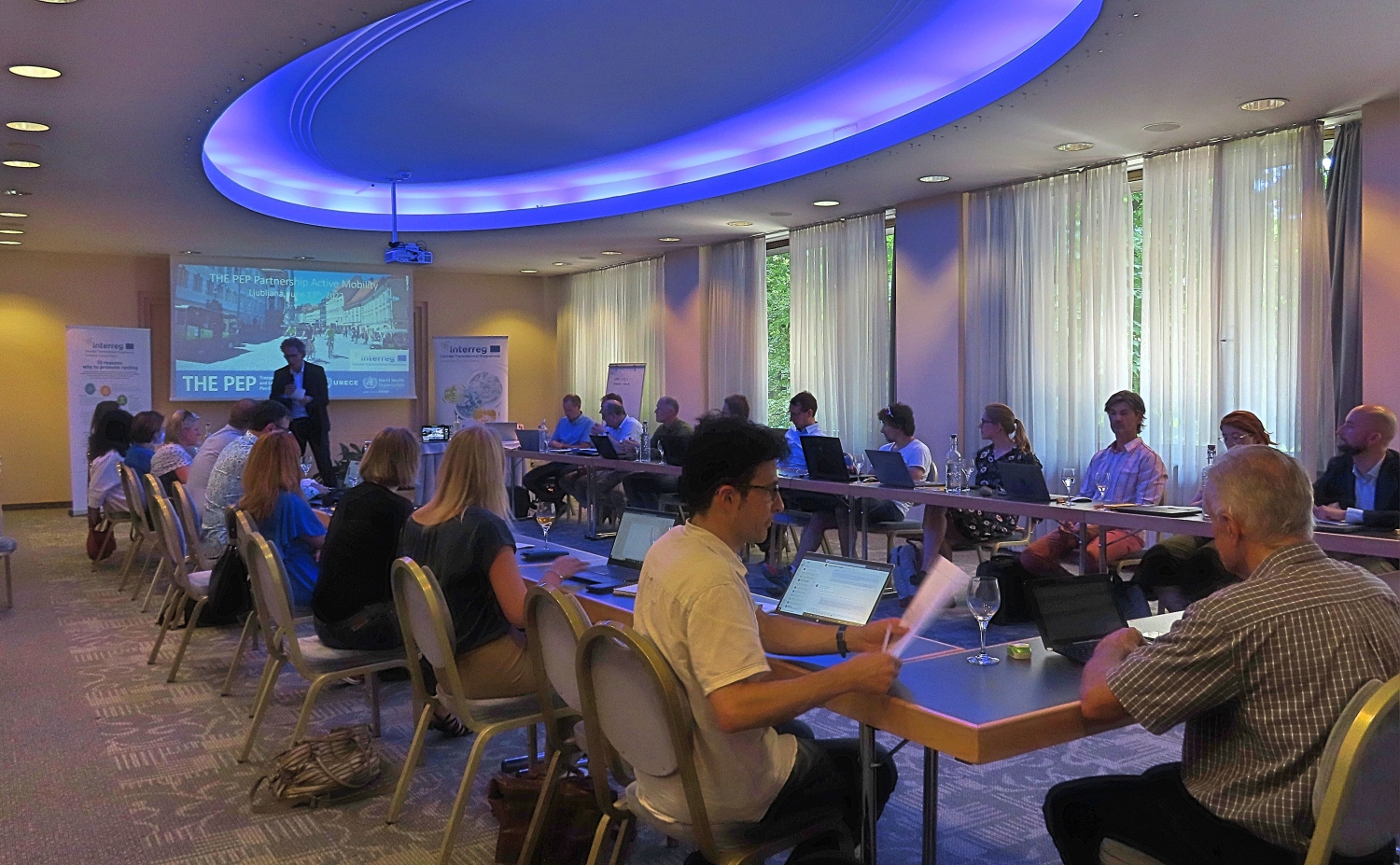
Photo: Ionut Maftei
Robert Thaler, the Vice-Chair of THE PEP (Transport, Health, Environment Pan-European Programme) attended a series of speeches on what can be achieved when implementing plans at the international, national and local levels.
“We have a Pan-European plan on cycling – first ever in history, ” stated Robert Thaler, mentioning also the importance of its implementation in 9 European countries under the Danube Cycle Plans project. That cycling is of great importance is indisputable, especially at these times when the world is desperately looking for solutions to the climate crisis, health challenges and the development of inclusive and liveable cities. Cycling is a solution, or at least helps to solve a whole range of the current world issues. "Let’s bike Europe!" Robert Thaler concluded his keynote speech with a challenge to all participants.
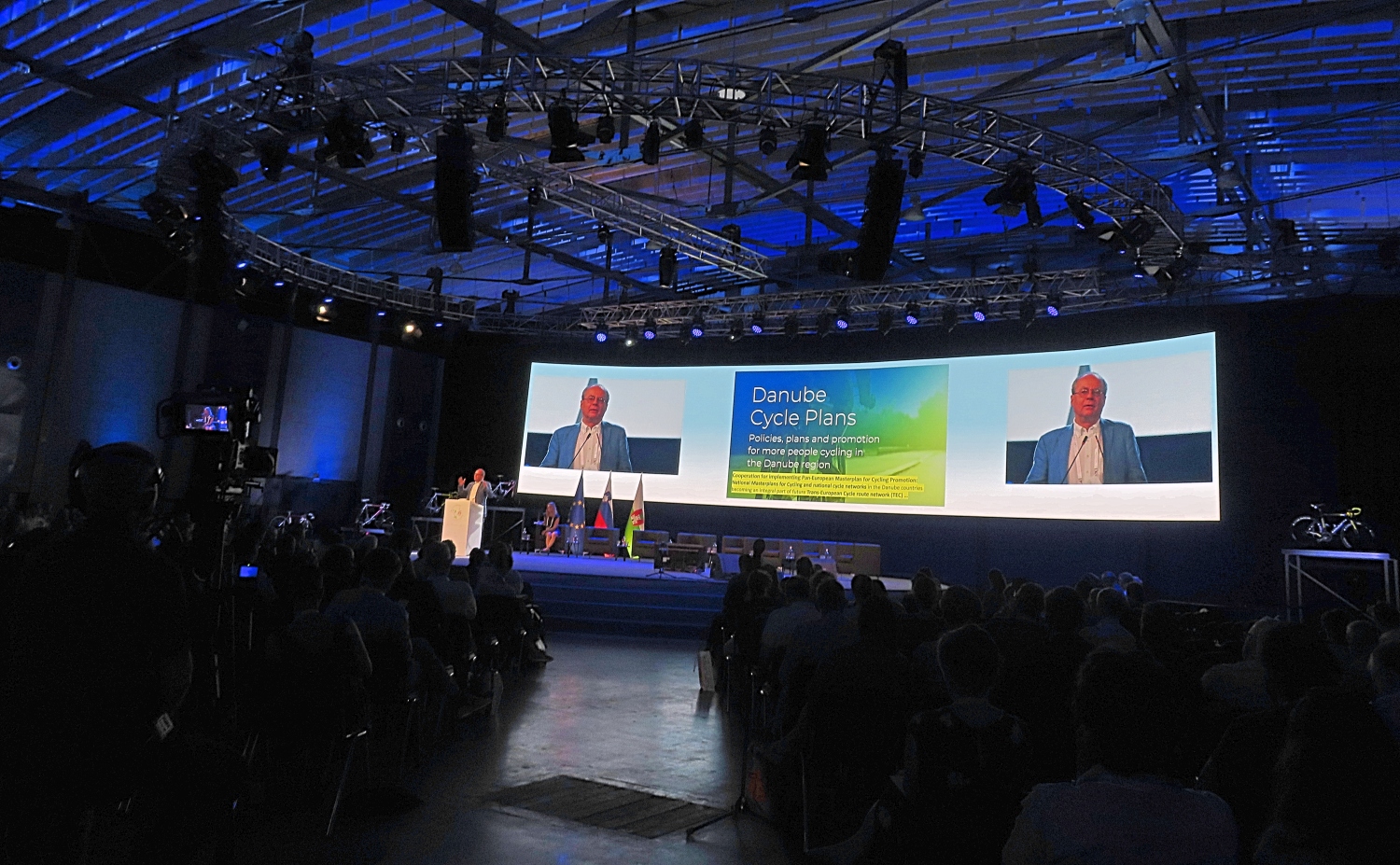
Photo: Ionut Maftei
In the following four days of the conference, presentations were interspersed with discussion panels on policy-making, infrastructure development, methods of argumentation and communication in transport and tourism.
In 2018, the adoption and implementation processes of the first Slovenian regional sustainable urban mobility plan for the Ljubljana urban region (SUMP LUR) were launched. “Regional cycling connectivity: Safe & active mobility in Ljubljana and beyond” was a session which, with the participation of the speaker Gregor Steklačič, Slovenia's National Cycling Coordinator, aimed to present the policy initiatives and actions to leverage regional cycling connectivity in the Ljubljana urban region and across the EU. Cooperation between city, regional and national levels has proved to be crucial for the capital of Slovenia.
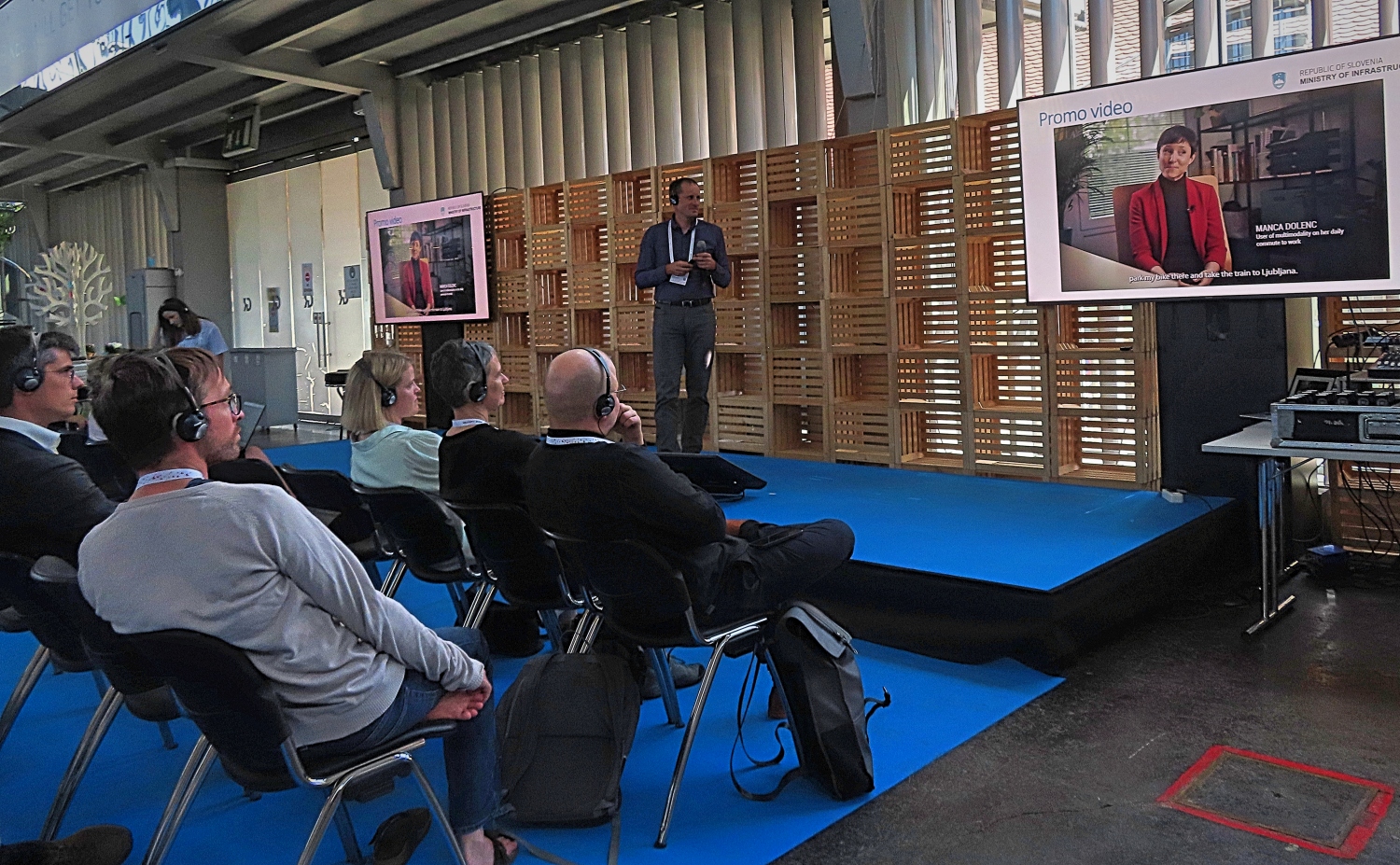
Photo: Ionut Maftei
National cycling strategies are crucial policy tools for countries to develop and grow the overall modal share of cycling. This generates numerous positive impacts, such as cleaner air, healthier and happier citizens, more liveable cities and towns, better rural connectivity and more vibrant local economies. The conference programme repeatedly offered national and transnational strategies, such as in the block called “Pushing for change: National strategies”, with 2 national cycling coordinators, Martin Eder (Austria) and Gregor Steklačič (Slovenia) for Danube Cycle Plans project.
Martin Eder, the Austrian cycling coordinator demonstrated how countries with existing strategies can work to increase cycling levels in a step-by-step manner. The Danube Cycle Plans project expects the development of 5 new and 4 updated National Cycle Plans in 9 countries.
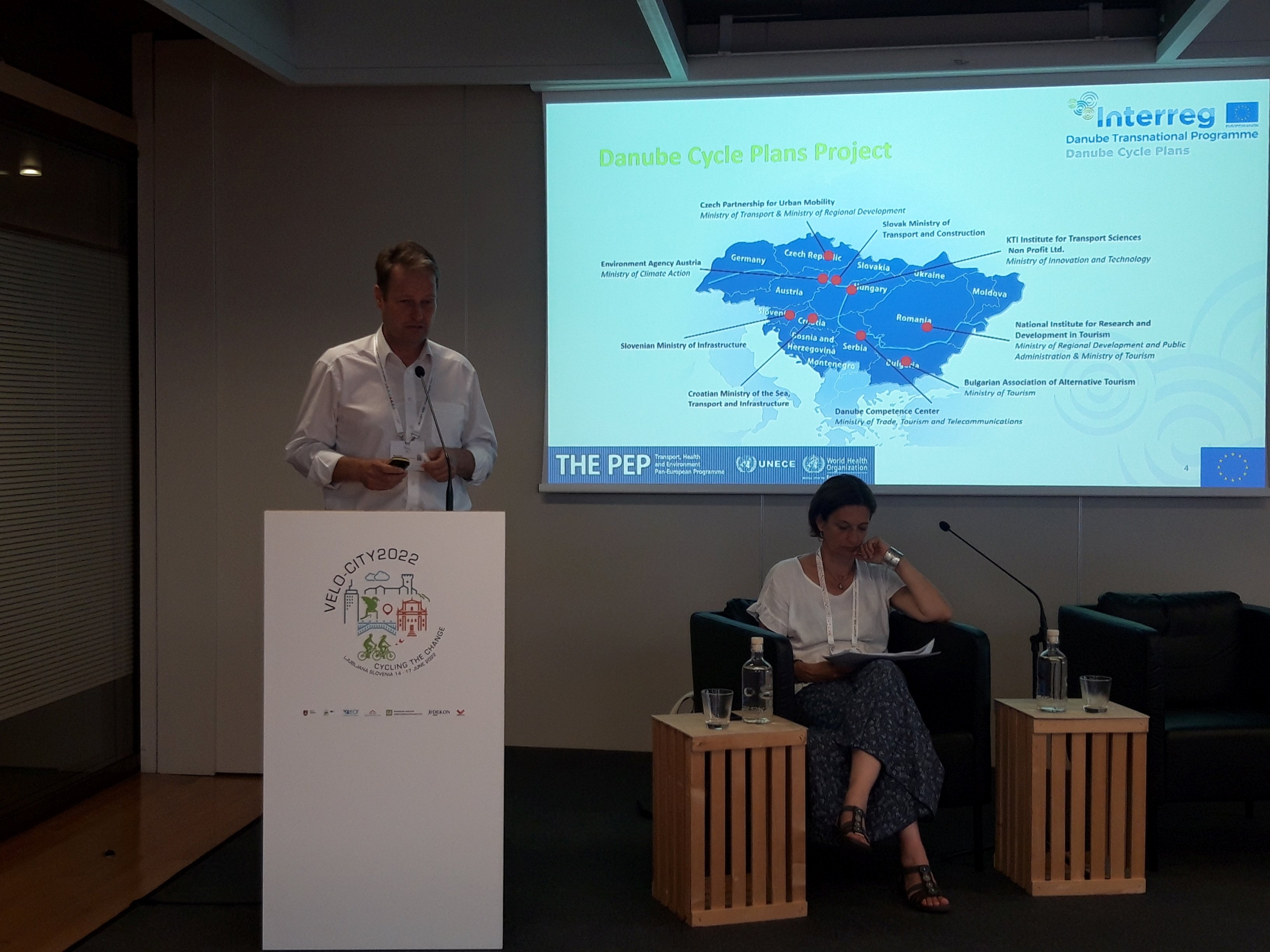
Photo: Jitka Vrtalova
Another block “Cycling: A booming sector for the economy and jobs” demonstrated the benefits of cycling. Tamás Andrejszki from the Hungarian partner of Danube Cycle Plans (KTI - Institute for Transport Sciences) presented the synthesis research on the potential update of the Cost-Benefit Analysis - to be able to calculate the real value of cycling. We also saw really reinforcing examples from the Netherlands, Italy and Austria, showing undeniable benefits for health, employment, local economy and safety. Another crucial point was emphasized by Priscilla Petitjean from France - that the cycle industry should pay more attention to sustainability.
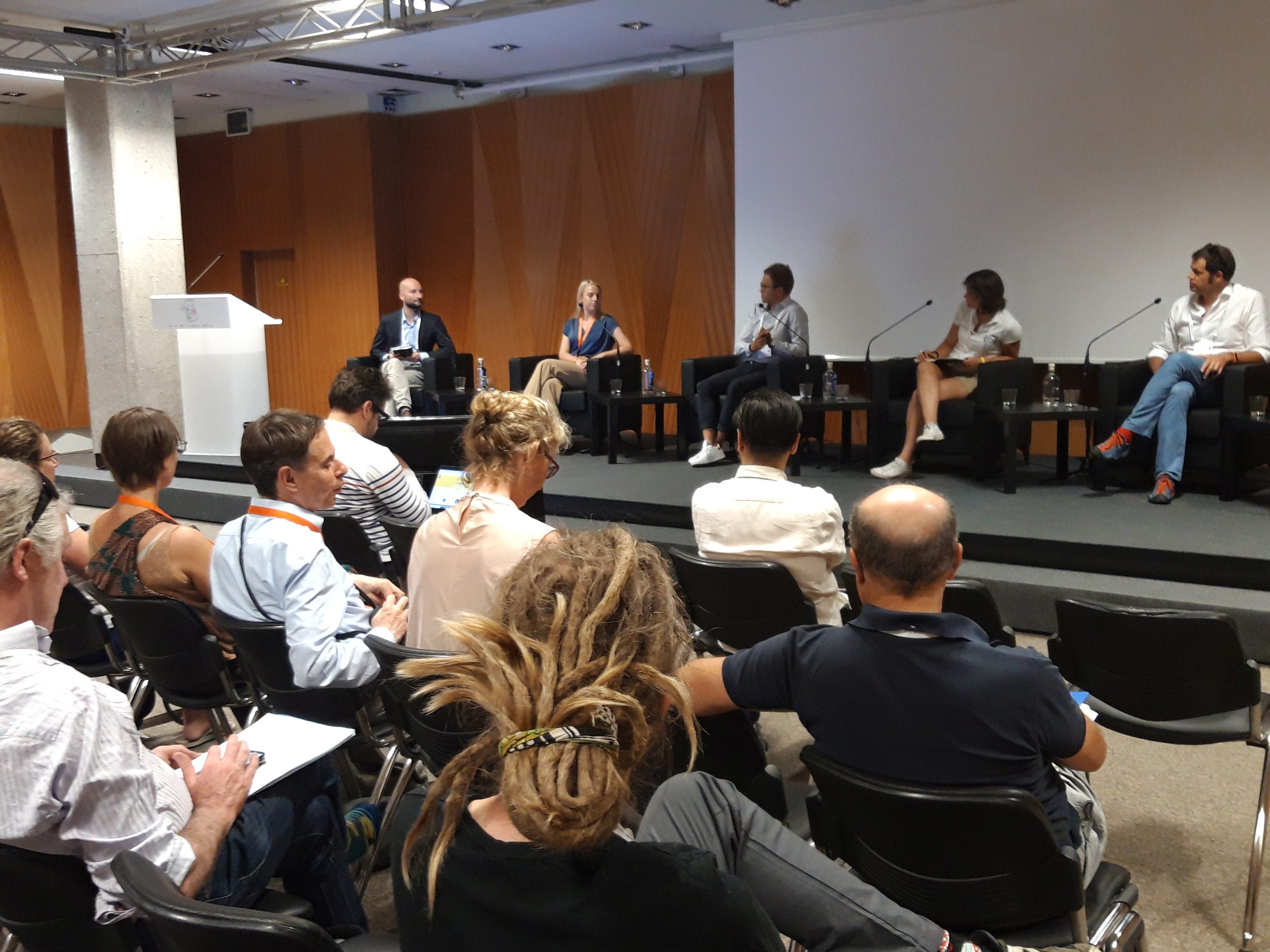
Photo: Jitka Vrtalova
Nevertheless, encouraging cycling and implementing bold measures to ensure safe and efficient travel by bike to access workplaces and other essential services is not always a smooth sailing. Denmark, the Netherlands, France, Austria - all these countries have gone through the same evolution from a car-oriented policy to the current bicycle boom.
Looking into motivations for the most often negative attitudes, experiences of cyclists and advocates at the forefront of the conflict, and strategies for successful dealing and learning from such disagreements in the future were the main topics of the panel “Beat the bikelash: Getting citizens and media on board”. Jitka Vrtalová from the Partnership for Urban Mobility gave some tips for communicating new measures and working with cycling ambassadors.
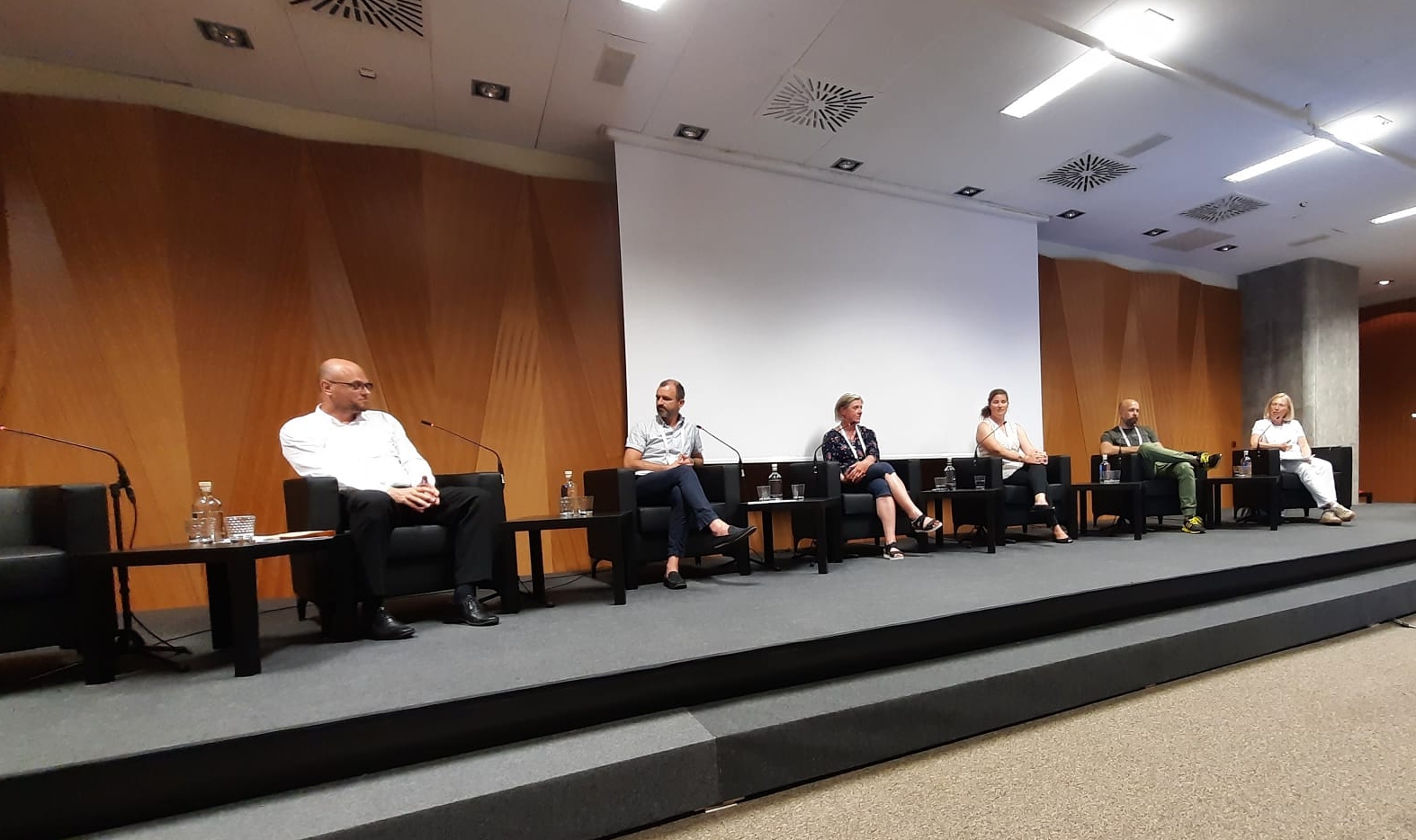
Photo: Jaroslav Vymazal
For more than 20 years, The European Mobility Week - an awareness-raising campaign on sustainable urban mobility run by the European Commission - has been helping cities to communicate. The pan-European campaign has become a trigger for a series of permanent measures in and around cities. Jaroslav Vymazal, city councillor of Jihlava, showed with concrete examples how focused communication has helped transform places and reduce the overall volume of car traffic by 14%.
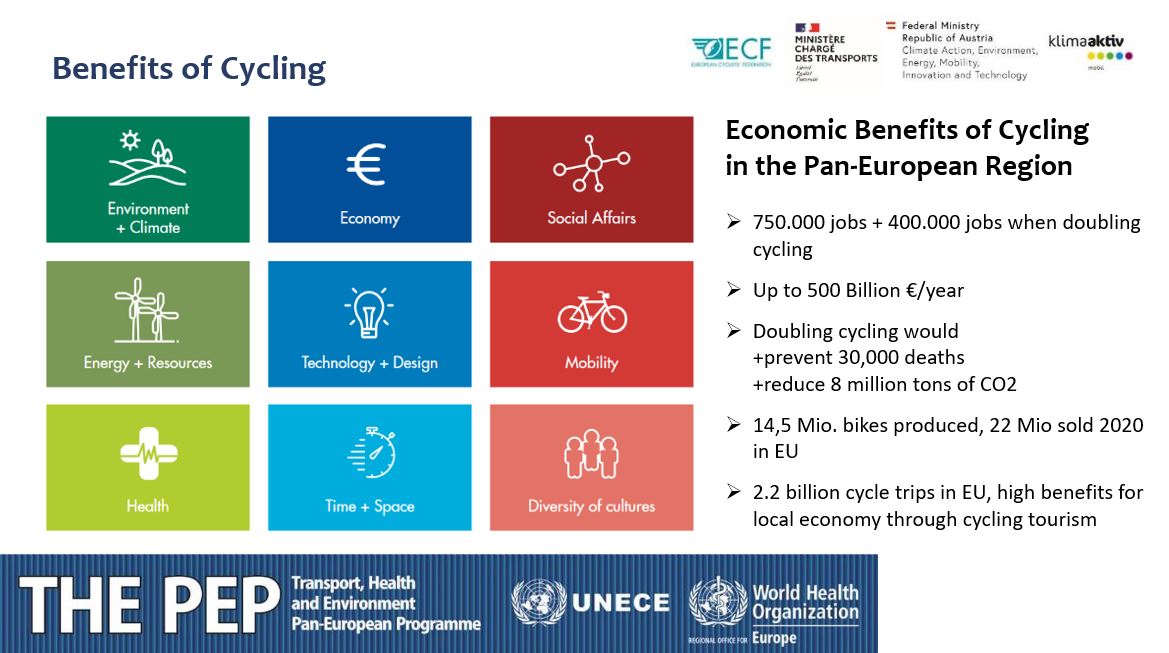
Source: Robert Thaler
Velo-city was closed with an event where winners of the ECF Awards 2022 were presented. Finally, the Velo-city flag was handed from Mayor Zoran Jankovic of Ljubljana to Leipzig Deputy Mayor Thomas Dienberg and with that act, Velo-city 2022 came to a close.
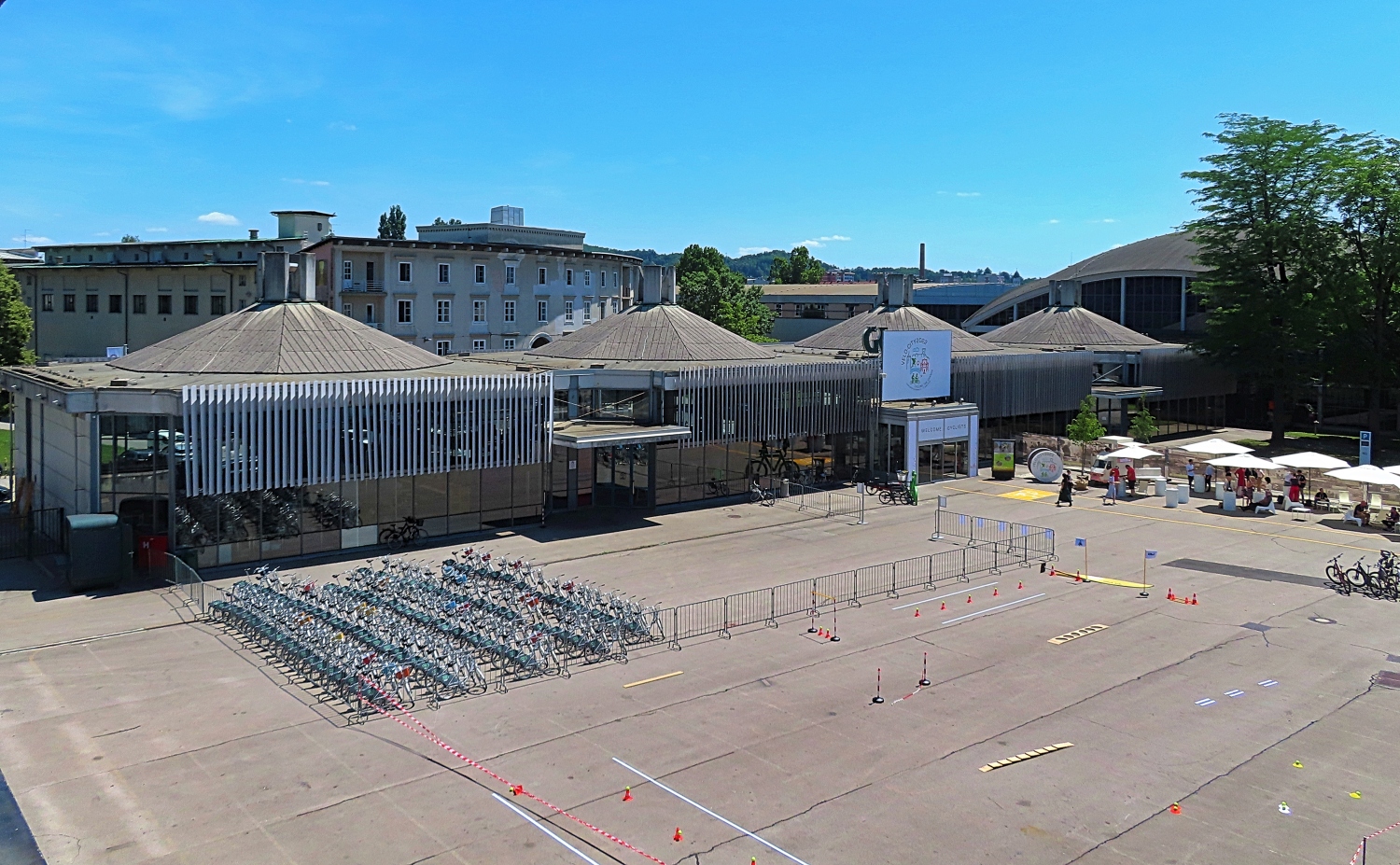
Photo: Ionut Maftei
ABOUT VELO-CITY
The Velo-city conference is the European Cyclists' Federation (ECF) annual flagship event, organized by the ECF together with selected host cities every year in a different city.
Velo-city is the World Cycling Summit serving as a global platform for knowledge exchange and policy transfer.
Since its first edition in 1980, it has played a valuable part in promoting cycling as a sustainable and healthy means of transport for all. Every year, Velo-city brings together a growing number of more than 1400 participants from over 60 countries who are involved in the policy, promotion and provision for cycling, active mobility and sustainable urban development. The conference exhibition showcases the latest innovations for a better cycling experience in cities and beyond.
CYCLING THE CHANGE
The COVID-19 pandemic has changed the way we live and challenged our view of reality. Cycling plays a significant role in driving and maintaining this change beyond the crisis and in achieving our global climate goals. Cycling is the "wind of change” in urban development. It reveals itself in infrastructural re-design, the re-allocation of public space, the development of sharing concepts, ideas for building cities for people, innovative approaches in providing various forms of services to citizens, and in bringing people closer together- with the intention of adapting to a "new normal” and improving the quality of life.
LJUBLJANA
Ljubljana is a historical city with a rich culture influenced by the neighbour regions and its unique location surrounded by stunning mountains, lakes and not far from the turquoise waters of the Adriatic Sea. Thanks to its strategic location, Ljubljana has always been part of Central European avant-garde tendencies and an important bridge to the Balkan countries. Today, Ljubljana has become one of the best examples of a city that ventured to close its city centre to cars, dedicating the area to active mobility and creating a great functional and clean shared space for citizens and visitors.
Ljubljana city centre is all about reclaiming public space for people and creating the environment for not only cycling and walking but also for providing safe access for all, including children, women, the elderly and people with disabilities. It is only natural that people are in the centre of our discussion and consequently inclusion, social and technological tools, connectivity, public space, timely policy and regulation are the main themes of Velo-city 2022, Ljubljana.
